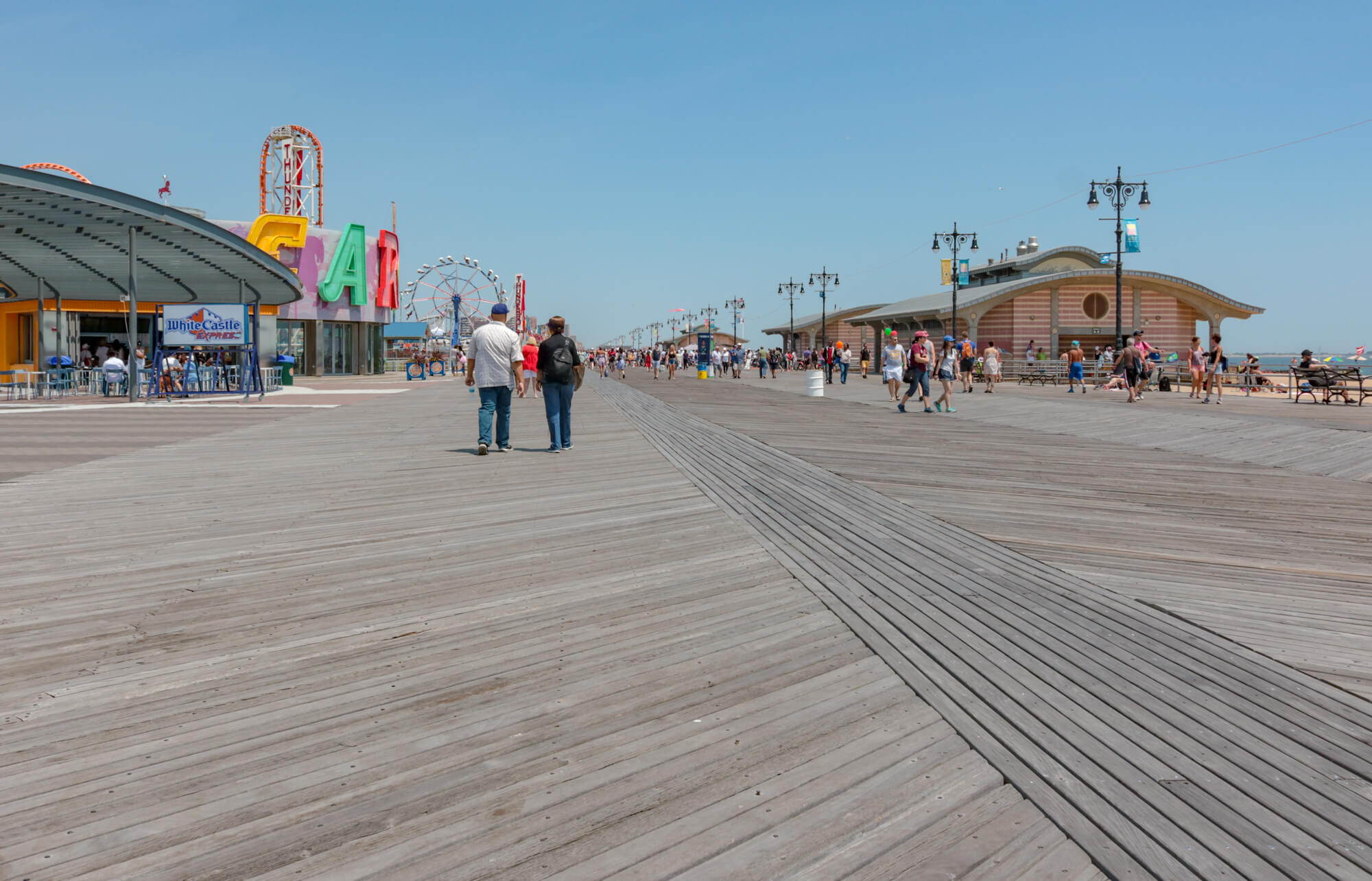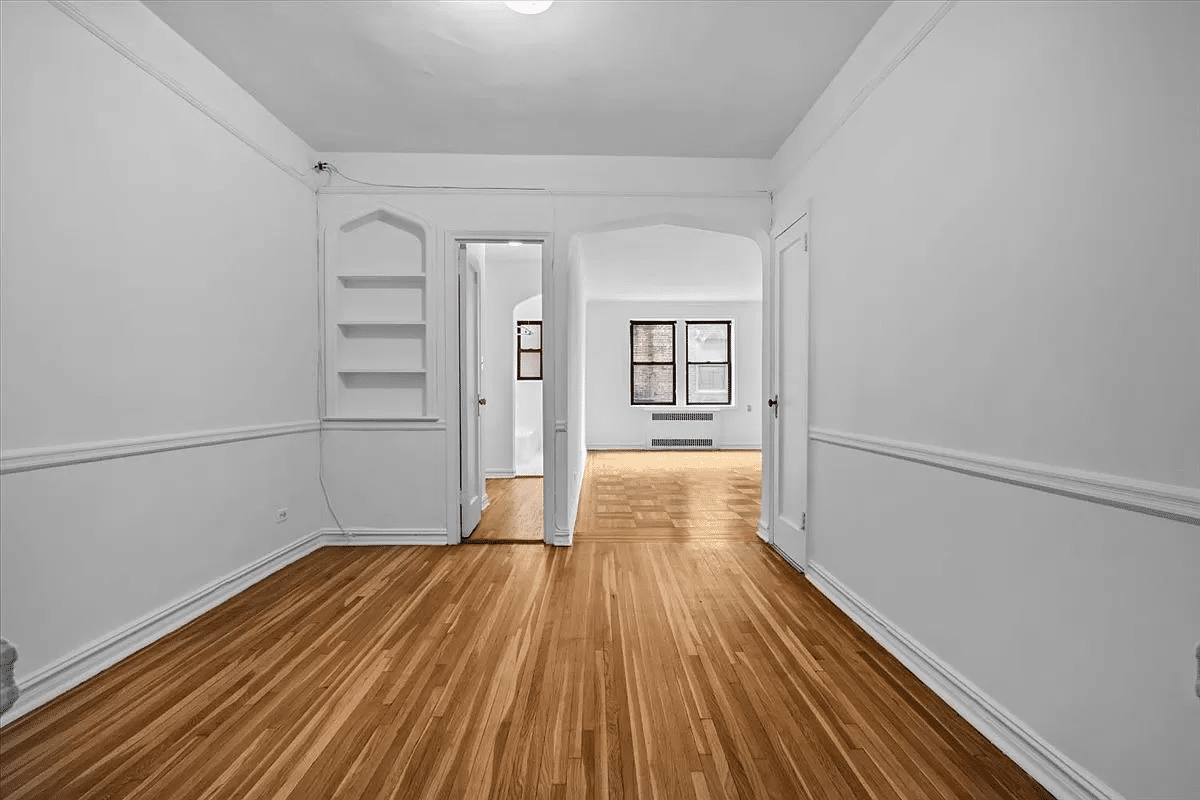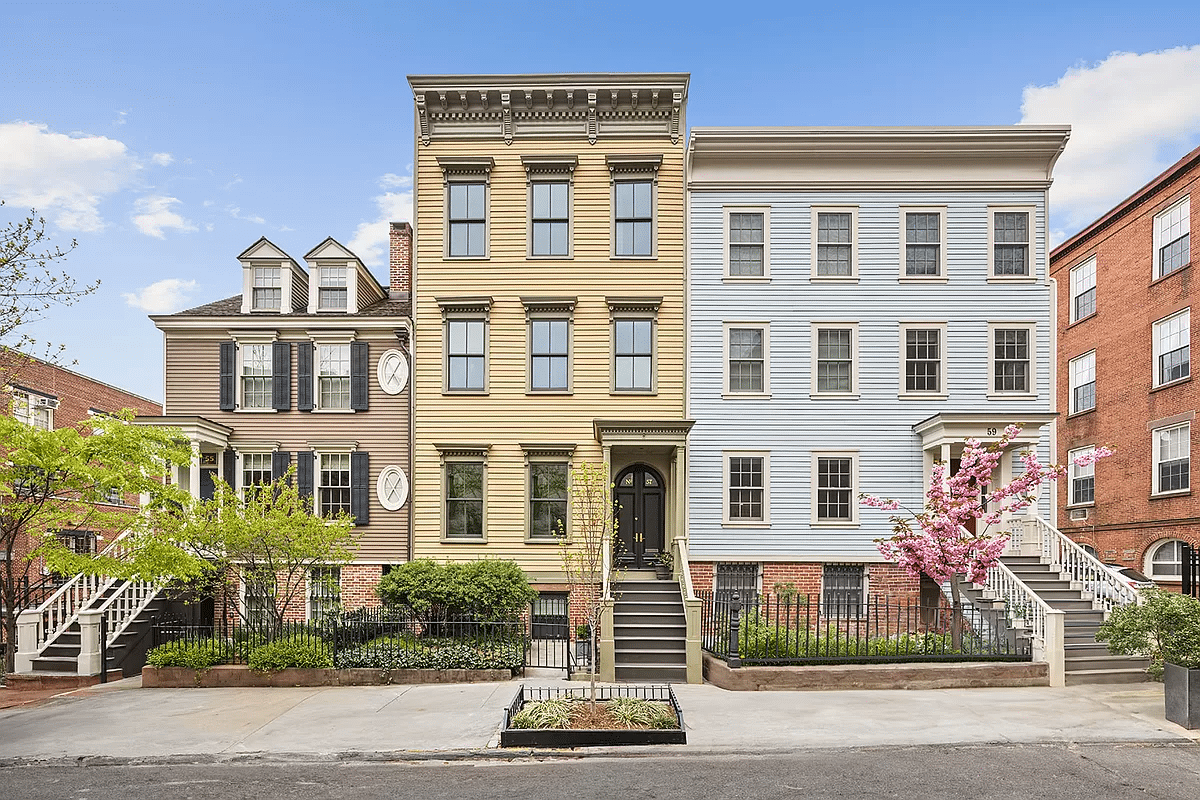Parks Department Reveals Coney Island Boardwalk Lacks Year-Round Carpenter for Repairs
There are no carpenters assigned to maintain the Coney Island Boardwalk year-round, despite the frequent damage that the heavily trafficked landmark sustains, a Parks Department official revealed at a Monday hearing.

Photo by Susan De Vries
There are no carpenters assigned to maintain the Coney Island Boardwalk year-round, despite the frequent damage that the heavily trafficked landmark sustains, a Parks Department official revealed at a Monday hearing.
“Outside the [peak] season, no carpenters are specifically dedicated to Coney Island, but we’re doing repairs whenever they’re necessary,” said Mark Focht, the deputy commissioner of maintenance for the Parks Department at an April 12 City Council hearing. “During our peak season — around now through the season — we dictate two carpenters to maintain the boardwalk.”
The revelation comes as area Council Member Mark Treyger is calling to ramp up repairs on the 98-year-old Riegelmann Boardwalk, whose wooden boards are often dislodged and broken by large vehicles driving along it, according to locals.
“Almost all of the damage that happens on the boardwalk is vehicular damage,” Rob Burstein, the president of the Coney Island-Brighton Beach Boardwalk Alliance, told Brooklyn Paper in 2019.
Though the public is barred from driving on the landmark, NYPD cars often patrol the boardwalk, and the Parks Department drives around regularly for inspections, repairs and garbage removal. Park personnel tend to use lightweight carts, known as gators, for their activities, but some of its repairs require large trucks that can weigh more than 12,000 pounds — wreaking havoc on the delicate boards, said one local maven.

“The damage that these vehicles cause to the boardwalk are cracked/broken boards, collapsing of the understructure supporting beams, popping up and bending over the nails and screws,” wrote Orlando Mendez in an email to Brooklyn Paper in 2019. “This is something we never saw growing up in the community.”
The damage isn’t only an eyesore; it can also lead to injuries. Last year, a Brighton Beach man sued the city after his leg fell through a wooden plank, and former Councilman David Greenfield injured his leg because of a broken board, Treyger said.
Locals have long called for a ban on vehicles and increased maintenance of the 2.7-mile pedestrian boardwalk, repeatedly bringing up the issue in community board meetings and forming a Facebook group called “Concerned Residents for a Safer Boardwalk.”
In February 2020, Treyger answered those calls when he introduced legislation that would bar all vehicles over 2,800 pounds from driving onto the Coney Island boardwalk. If passed, the law would force the Parks Department and the NYPD to use only lightweight gators. Ambulances and other vehicles responding to emergencies are exempt from the rule.
Treyger said that he also hopes the law could also reinforce the existing ban on vehicles, which often drive around without punishment. Hardly any unauthorized vehicles receive tickets, said one Parks Department official at the April 12 Council hearing regarding Treyger’s bill.
“In the past three years, we have issued two summonses, and both of them were at Coney Island,” said Edwin Rodriguez, the assistant commissioner for Parks Enforcement Control, the Parks Department-run peace officers that patrol the city’s parks. Rather than issue summonses, officers tend to ask drivers to leave, he said. “We encounter very few authorized on the boardwalk, and when we do, we escort them off and educate them.”
In addition to its lax vehicle ban, the boardwalk also lacks a full-time, year-round repairman, Focht said. Though the Parks Department assigns two carpenters to the nearly 3-mile-long landmark every summer, the agency conducts its repairs on an ad-hoc basis in the off-season.
“Generally, we inspect the boardwalk year round,” said the Parks official, who voiced his support for Treyger’s vehicle ban. “We obviously ramp up our repairs for the boardwalk right now in the spring in advance of the season.”
Treyger said he would work with the Parks Department and the city to make sure the boardwalk receives at least one year-round carpenter.
“It’s concerning to hear that we don’t really have full-time year-round staff assigned to it. I understand that there’s attention paid to the season, but folks live here beyond the season, and it is a heavily visited boardwalk beyond the seasonal months,” he said. “Southern Brooklyn had no open streets as part of the Open Streets Program, so people turned to the boardwalk as their refuge.”
Though Treyger’s bill to ban vehicles from the promenade is not yet slated for a vote, the Parks Department’s plan to install bollards at all of the walkway’s entrances in order to prevent terrorist attacks is well underway, and the $3.2 million metal structures are set to be installed sometime in 2022, Focht said.
Editor’s note: A version of this story originally ran in Brooklyn Paper. Click here to see the original story.
Related Stories
- Coney Island Boardwalk Designated a Scenic Landmark by the LPC
- What Does It Mean to Landmark the Coney Island Boardwalk?
- After Previous Controversial Plan Fizzled, City Relaunches Redesign of Fort Greene Park
Sign up for amNY’s COVID-19 newsletter to stay up to date on the latest coronavirus news throughout New York City. Email tips@brownstoner.com with further comments, questions or tips. Follow Brownstoner on Twitter and Instagram, and like us on Facebook.









What's Your Take? Leave a Comment